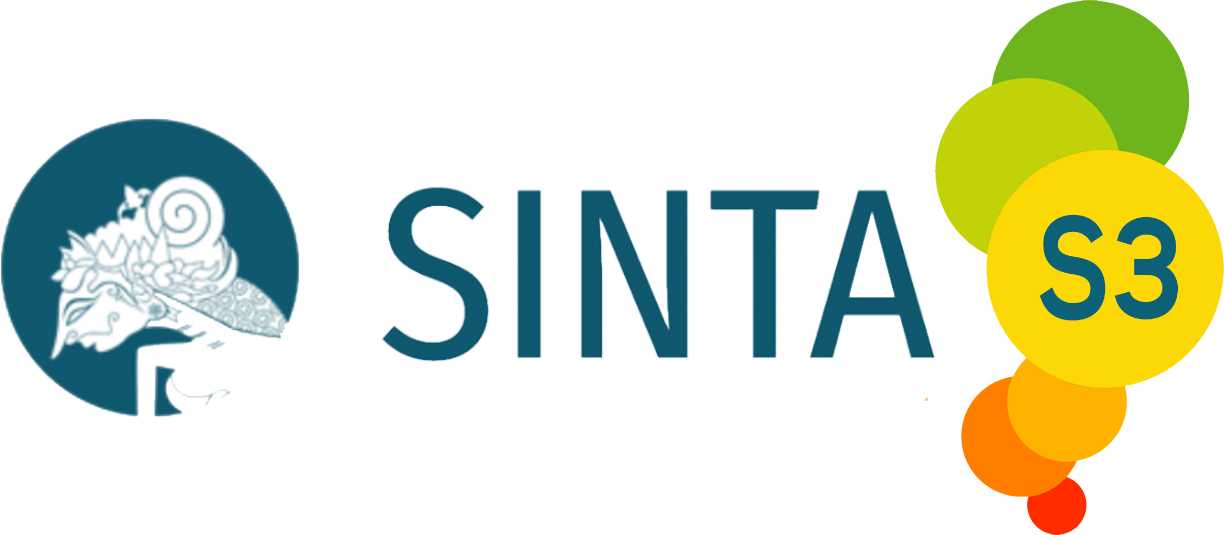Objektifikasi Penafsiran Al-Qur’an sebagai Upaya dalam Menguatkan Wawasan Kebangsaan
DOI:
https://doi.org/10.12928/taqaddumi.v2i1.6227Keywords:
Objectification of Al-Qur'an Interpretation, Religion and Nationalism, Islam and NationalityAbstract
The Qur'an, the first maṣdar tasyrī', teaches the importance of building unity. Recent phenomena have actually shown the opposite. Some groups want to build Indonesia only with the spirit of nationality, but other groups want to base it only on religion. Even these two poles of thought are throwing accusations at each other. Indonesia's development cannot be based solely on the spirit of nationality or religion alone. This of course is no longer relevant. This paper examines the above problems with the descriptive-analytical method. The researcher presents the facts of the relationship pattern of religion and nationalism or Islam and nationality (das sein), then the researcher offers the pattern of relationships that should be sought by each element of the nation (das sollen). This study concludes that the pattern of the relationship between religion and nationalism or Islam and nationality needs to be brought from an attitude of subjectivity to an attitude of objectivity. If the aspect of subjectivity comes out, in the sense of believing in each other's truth and accusing the other of being wrong, it can lead to SARA. Therefore, both religion and nationalism or Islam and nationality need to bring up objective values as a common denominator, namely a common reference in building Indonesia.
Al-Quran, maṣdar tasyrī‘ pertama, mengajarkan pentingnya membangun persatuan Fenomena yang terjadi akhir-akhir ini justru menunjukkan fakta sebaliknya. Sebagian kelompok ingin membangun Indonesia hanya dengan spirit kebangsaan, namun di kelompok lain ingin mendasarkan hanya pada agama. Bahkan kedua kutub pemikiran ini saling melontarkan tuduhan. Pembangunan Indonesia tidak dapat didasarkan hanya pada spirit kebangsaan atau agama semata. Hal ini tentu sudah tidak lagi relevan. Makalah ini mengkaji problematika di atas dengan metode deskriptif-analisis. Peneliti menyajikan fakta pola hubungan agama dan nasionalisme atau Islam dan kebangsaan (das sein), kemudian peneliti menawarkan pola hubungan yang seharusnya diusahakan oleh setiap elemen bangsa (das sollen). Kajian ini menyimpulkan bahwa pola hubungan agama dan nasionalisme atau Islam dan kebangsaan perlu dibawa dari sikap subjektivitas kepada sikap objektivitas. Jika aspek subjektivitasnya yang keluar, dalam arti meyakini kebenaran masing-masing dan menuduh yang lain salah, maka bisa menimbulkan SARA. Oleh karena itu, baik agama dan nasionalisme atau Islam dan kebangsaan perlu memunculkan nilai objektif sebagai common denominator, yaitu rujukan bersama dalam membangun Indonesia.
References
Akhmadi, Agus. “Moderasi Beragama Dalam Keragaman Indonesia.” Jurnal Diklat Keagamaan 13, no. 2 (2019).
Al-Banna, Hasan. Kumpulan Risalah Dakwah Hasan Al-Banna. Diedit oleh Khozin Abu Faqih. Jakarta: Al-I’tishom, 2007.
Augustin, Saint, dan Grecian Blue Tark. “Philosophy of Religion.” In Pengantar Kajian Islam. Jakarta: Pustaka Al-Kautsar, 2013.
Darlis. “Mengusung Moderasi Islam di Tengah Masyarakat Multikultural.” Rausyan Fikr 13, no. 2 (2017).
Gardner, John. Pancasila Dalam Praksis Pendidikan. Yogyakarta: UNY Press, 2019.
Haidt, Jonathan. The Righteous Mind. Diedit oleh Damaring TyasWulandari Palar. Jakarta: Gramedia, 2020.
Kuntowijoyo. Islam Sebagai Ilmu; Epistemologi, Metodologi dan Etika. Yogyakarta: Tiara Wacana, 2007.
———. Muslim Tanpa Masjid; Esai-Esai Agama, Budaya, dan Politik dalam Bingkai Strukturalisme Transendental. Yogyakarta: Mata Bangsa, 2018.
Lafif, Yudi. “Wawasan Kebangsaan,” 2020.
Muladi. “Wawasan Kebangsaan (4 Konsesus Dasar Berbangsa dan Bernegara).” Last modified 2019. Diakses Januari 10, 2022. https://kesbangpol.bantenprov.go.id/id/read/bidang-bina-ideologi-dan-wawas.html.
Munawwir, Imam. Asas-Asas Kepemimpinan Dalam Islam. Surabaya: Usaha Nasional, 1983.
Nata, Abuddin. Pendidikan dalam Perspektif Al-Qur’an. 1 ed. Depok: Kencana, 2018.
Natsir, Haedar. “Muhammadiyah Tak Bisa Fikih An Sich.” Republika. Jakarta, Juni 9, 2015.
Nurwakhid, Ahmad. “No Title.” Last modified 2020. https://bnpt.go.id/bnpt-tidak-semua-yang-radikal-adalah-teroris.
Sutrisno. Critical Issues and reform in Muslim Higher Education. Kuala Lumpur: IIUM, 2015.
Syarief, Ikhwan. “Cegah Radikalisasi, Mahasiswa Universitas Krisnadwipayana Selenggarakan FGD Terorisme.” Last modified 2020. Diakses Januari 10, 2022. https://unkris.ac.id/artikel/A116/cegah-radikalisasi-mahasiswa-universitas-krisnadwipayana-selenggarakan-fgd-terorisme.
Zaki, Jamil. The War for Kindness; Building Empathy in a Fractured World. New York: Penguin Random House, 2020.
Downloads
Published
Issue
Section
License
Copyright (c) 2022 Beta Pujangga Mukti

This work is licensed under a Creative Commons Attribution-ShareAlike 4.0 International License.
License and Copyright Agreement
In submitting the manuscript to the journal, the authors certify that:
- They are authorized by their co-authors to enter into these arrangements.
- The work described has not been formally published before, except in the form of an abstract or as part of a published lecture, review, thesis, or overlay journal. Please also carefully read the Taqaddumi Author Guidelines at http://journal2.uad.ac.id/index.php/taqaddumi/about/submissions#onlineSubmissions
- That it is not under consideration for publication elsewhere,
- That its publication has been approved by all the author(s) and by the responsible authorities – tacitly or explicitly – of the institutes where the work has been carried out.
- They secure the right to reproduce any material that has already been published or copyrighted elsewhere.
- They agree to the following license and copyright agreement.
Copyright
Authors who publish with the Taqaddumi Journal agree to the following terms:
- Authors retain copyright and grant the journal right of first publication with the work simultaneously licensed under a Creative Commons Attribution License (CC BY-SA 4.0) that allows others to share the work with an acknowledgment of the work's authorship and initial publication in this journal.
- Authors are able to enter into separate, additional contractual arrangements for the non-exclusive distribution of the journal's published version of the work (e.g., post it to an institutional repository or publish it in a book), with an acknowledgment of its initial publication in this journal.
- Authors are permitted and encouraged to post their work online (e.g., in institutional repositories or on their website) prior to and during the submission process, as it can lead to productive exchanges, as well as earlier and greater citation of published work.








